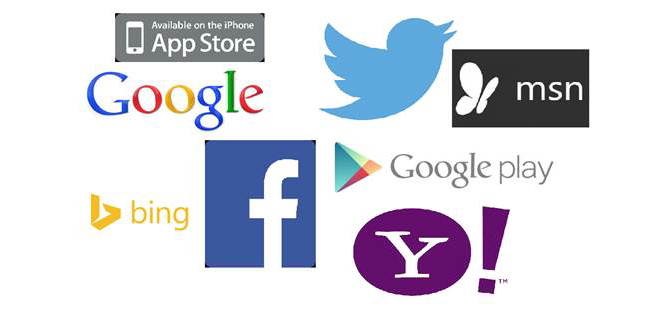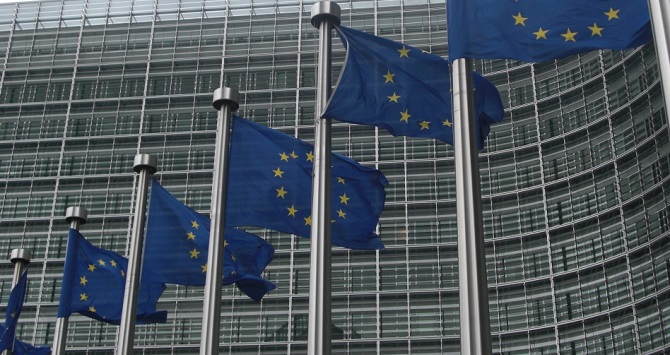 The Leveson Inquiry debated media plurality in the UK, and the implication of concentrated media power for democracy, but did not make detailed recommendations for policy change. Since then, Parliament and also Government have consulted. Now the regulator Ofcom has been asked to come up with a new framework for measuring media plurality and is consulting on this until 20 May. Sharif Labo and Damian Tambini argue that this new framework must be expanded to consider the new risks that arise from the role of internet intermediaries.
The Leveson Inquiry debated media plurality in the UK, and the implication of concentrated media power for democracy, but did not make detailed recommendations for policy change. Since then, Parliament and also Government have consulted. Now the regulator Ofcom has been asked to come up with a new framework for measuring media plurality and is consulting on this until 20 May. Sharif Labo and Damian Tambini argue that this new framework must be expanded to consider the new risks that arise from the role of internet intermediaries.
What is this about?
Following Ofcom’s public interest test on the proposed acquisition of BSkyB by News Corporation, the Secretary of State asked Ofcom to investigate the feasibility of measuring media plurality across platforms, including examining what type of content should be in scope and the role of online providers and of the BBC. This request was driven by Ofcom’s conclusion that the existing framework for considering plurality might no longer be equipped to achieve Parliament’s objectives of protecting democracy from concentrations of media power. Whilst the process was driven by concern about the role of Murdoch and the apparent cover up of phone hacking, rapid media change also prompted a debate on the changing nature of news delivery and the continuing validity of audience measures.
Ofcom released Measuring Media Plurality in June 2012, stating that online media and the BBC should be brought into the scope of the measurement framework and proposing 3 main metrics; availability, consumption and impact of sources of news of which consumption would form the foundation. Since then the Leveson Inquiry, The House of Lords Select Committee on Communication and DCMS have all weighed in and agreed with Ofcom’s broad proposals. The Government has outlined its position that online media should be brought within the measurement framework for media plurality. Following this broad agreement about the scope of plurality, the Secretary of State has now asked Ofcom to develop a detailed measurement framework which would allow the first baseline assessment of plurality.
Why is it happening?
Driven by a change in the way people access news, the existing regulatory framework for assessing plurality is no longer fit for purpose, a fact admitted to by Ofcom in their public interest test into the proposed BSkyB/News Corp acquisition. Under the existing statutory framework plurality is considered under the media merger regime, meaning whether or not a certain media merger could result in media concentration that could act against the public interest: the 20/20” rule. This rule prevents an organisation with more than 20% of the country’s newspaper circulation from holding a share of 20% or more in a Channel 3 licence or licensee. The role of online providers and intermediaries that have increasingly taken a larger share of consumers news diets are however conspicuously absent from the existing media merger or ownership regime.
Why does it matter?
This matters because any new framework should last at least for the next 10 years. At a time of high flux in the news industry, with new providers, new access methods and changing consumer behaviours, establishing a forward looking framework, one that can withstand these continuous changes in the news industry is critical to ensuring public interest goals continue to be met. It is crucial to informing long term public policy in relation to media plurality and ensuring that Ofcom supports the end goal of a well functioning democratic society.
What is wrong with the Ofcom approach
The key problem with the current framework is that it is cast too narrowly and does not contain any explicit acknowledgement of what the measurement framework would be used for. In our view it is unlikely that Ofcom would be able to design an effective framework without specifying the range of uses that this framework would be put to. The current version is based on a misconception of what the DCMS asked Ofcom to do. According to the Government’s Media Ownership Consultation Report of 6th August 2014, “Government has been clear that it will not consider changes to the existing policy or regulatory framework for media plurality until the measurement framework and baseline assessment have been delivered, so that we can ensure any changes are proportionate and targeted”. In our view it flows logically from this that the measurement framework is not merely an update of the Public Interest Test transactional review, or the Communications Act periodic review. It is a framework for a general review of media plurality that should be as wide as possible, with a view to informing long term public policy in relation to media plurality. This reflects the fact that the policy initiative is a direct result of (1) the recommendations of the Leveson Inquiry and (2) recommendations from Parliament, namely the House of Lords Communications Committee report on Media Plurality. Both Leveson, and the House of Lords were concerned with the wider implications of media power in a democracy, and the danger that a threat to media plurality may pose. This review framework should reflect the breadth of purpose and examine all potential threats to media plurality.
“Media plurality is not a goal in itself but a means to an end”
Ofcom has stated that is not a goal but a means to the end of having a well-functioning democratic society. Media plurality should be seen as more than just having a diverse set of voices, but also ensuring the media communication does not give rise to other risks that harm this end goal of a well functioning democratic society. Craufurd Smith, Tambini and Morisi summarised the objectives of media plurality policy as follows:
- maintaining the integrity of the democratic process;
- preventing media misrepresentation and suppression of information;
- enhancing citizens’ access to diverse information and opinions;
- protecting freedom of expression.
Based on this, Ofcom’s scope of media plurality is focused on just 1 of 4 potential risks to media plurality, the third.
Under a narrow definition of media plurality, online intermediaries may pose minimal risks to ensuring citizens’ access to diverse information and opinions. There are other areas where there is potential harm to the end goal of well functioning democratic society, Take for example maintaining the integrity of the democratic process and preventing suppression of information. Digital intermediaries have the capacity, technical know-how and scale to target messages to users based on their profiles. The role they play is one of an online gatekeeper deciding what information is prioritized, demoted or omitted completely. Because the algorithms that govern this editorial process are opaque to a user (indeed a significant proportion of users are completely unaware that any filtering process is taking place on social media), there are no guarantees that an intermediary would not manipulate information and news which would hinder participation in democratic conversations. This would present a real risk to democratic communication. The Facebook voting experiment provides some evidence of how manipulating data (in this case showing some users a message to encourage them to vote) had political consequences (Researchers estimated about 340,000 extra people turned out to vote in the 2010 US congressional elections because of a message targeted by Facebook). Encouraging civic responsibility might be benign, but future messages could be targeted to supporters of one party whose policies might benefit the intermediary or certain information could be suppressed.
A wider theory of harm in relation to media plurality entails monitoring of new elements that are not relevant to the existing legal and regulatory framework for media plurality, but are relevant to the objectives that lie behind these instruments. In summary, the scope of the plurality framework Ofcom has put forward needs to be expanded to better account for the new risks that arise because of intermediaries expanded role in consumer media diets. Regulation of the algorithm is not the intended goal here but rather a dialogue between intermediaries and regulators in order to ensure that media plurality continues to be protected in the digital age.
This post gives the views of the authors and does not represent the position of the LSE Media Policy Project blog, nor of the London School of Economics and Political Science. Ofcom’s consultation on measurement framework for media plurality closes at 17:00 on 20 May.





